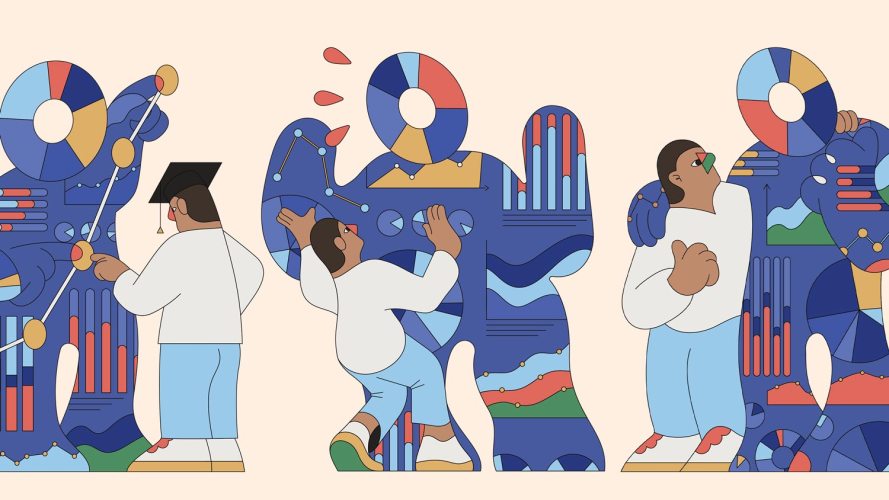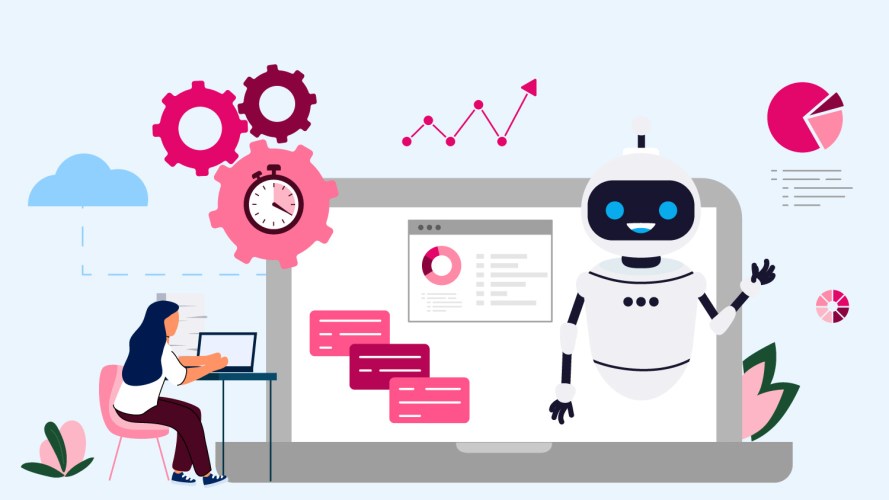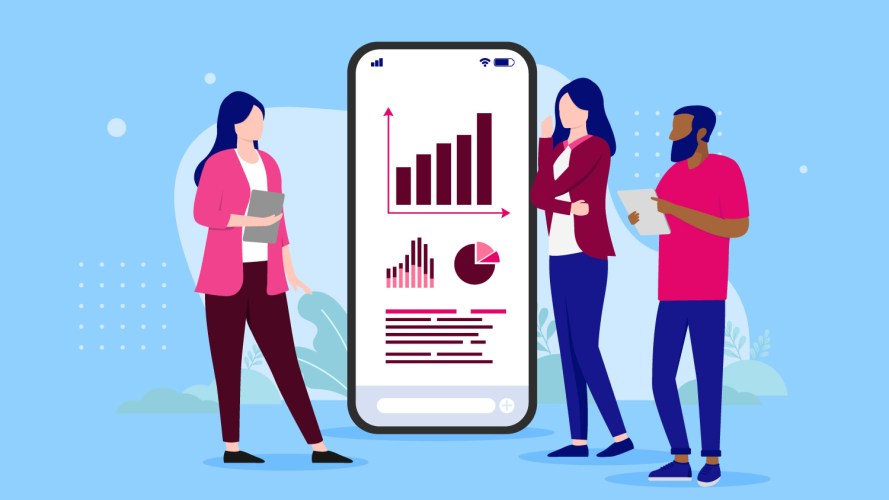Does Data Make You Smarter?



We’re collecting more data than ever. But only humans can make correlations and ask questions that result in better conclusions.

Lisa Lee
You’re surrounded by and inundated with data, but is it making you any smarter? Is your company more productive or profitable? Does it run more efficiently?
Conventional wisdom may suggest that collecting and having access to massive amounts of data will yield more informed, faster decisions and ultimately better business results. But the reality is more nuanced. Here, we debunk three data dictums.
This article originally appeared in Vantage Point, a Salesforce magazine



MYTH #1: Translating data requires specialized degrees
FACT: Many people without specialized degrees in data science or analytics have a natural ability to connect the dots between data points within datasets
One example: data storytelling, where writers dig into data to produce compelling visualizations. Think of mainstream news organizations that produced COVID-19 infection and vaccination rate visualizations, or detailed analyses around national elections.
The Harvard Business Analytics Program called out on its website soft but essential skills to succeed at business analytics: great communication, inquisitiveness, problem-solving, critical thinking, and visualization. These skills can certainly be honed through educational programs, but they are often the hallmark intangibles that make people successful.
“I am all for education, but there are folks who I know who are not formally trained in analytics, who just have a feel for it,” said Mike Jacobs, vice president of performance marketing at Etsy. “When they look at a curve or a table, they just get it.
“You may have great statisticians and data professionals who can make a critical difference in [data] collection and organization, but professionals who can connect the dots are incredibly important. They could not tell you what SQL is but seem to be able to instantly grab associations when the data is laid out.”
That is echoed by Jackie Yeaney, executive vice president of marketing at Tableau, who said, “You don’t need to have specific data skills. You need to have data literacy.” She explained that stakeholders need to understand the data they’re looking at and what they should and shouldn’t use.
Corndel, a provider of data analytics and management training programs, noted in an October 2020 report that data science is essentially a “human pursuit” and that the importance of developing soft skills alongside technical skills is essential. “Soft skills training is imperative,” Corndel noted. “After all, technical excellence can only be of true value if it is presented in a way that less technical people can understand.”
MYTH: You should never challenge what the data tells you
FACT: The best decisions are often made by those who rely on a balance of judgment, analysis, analytical skills, and dissenting opinions
These are data-savvy workers who do not unquestioningly, exclusively trust data over their own good judgment to make decisions. After all, anyone can find a data point (or a few) to support their supposition.
“Data matters, but it can be often used as a crutch for avoiding hard decisions,” said Jacobs. “It is okay to counteract data sometimes because sometimes your data is self-fulfilling. You keep doing ‘the thing’ you’ve always done, and you keep optimizing to this one point.”
For example, if your audience has always been one specific demographic, the data around your conversion rates or merchandising will inevitably support continued targeting of that segment, possibly to the exclusion of others.
“As leaders, you have to be okay pushing through areas of uncertainty. It’s a big skill to know when to break away from the data, and it’s a courageous decision that needs to be made,” Jacobs said.
The bottom line: Even the best data needs to be augmented by humans who can make correlations and ask questions that result in better conclusions. Ideas, knowledge, theories, and opinions matter. Those things can’t be found in raw data.
MYTH: More data leads to better decisions
FACT: We’re collecting more data than ever, but that’s not necessarily leading to better decisions
Developing insights and taking action from the data is infinitely more challenging than merely collecting it – but it’s ultimately more meaningful to the business.
“I’m all for collecting as much data as you can, but ultimately what one does with data is what separates mediocre and great,” said Jacobs. “Quality of data matters, but also quality of the usage, quality of the insights, quality of the organization and reading of the data.”
It’s more important to figure out what you’re trying to measure, then prioritize analysis of that data. Jacobs offers this example: You may think you’ve uncovered an important insight that shows that it’s raining. But that inch-deep “insight” doesn’t tell you what you need to make a better decision. It’s analogous to looking at reams of raw data.
“The real insight,” said Jacobs, “is that opening our umbrella would improve dryness by 12 percent.”
The Data Science Foundation, which helps organizations make better data-driven decisions, noted that too much data results in a paradox of choice: “Given too many options to choose from, an individual has a hard time deciding or making a choice at all.”
“With so many data sets to choose from and metrics to measure against, data analysts can easily find themselves drowning in a sea of statistics,” DSF shared in an online article. “This can lead to many issues like inefficient use of time, inaccurate predictions, and a decrease in their employer’s profitability.”
Indeed, huge datasets are notoriously unruly. Analysts need to refine the variables within the datasets to make the information more manageable and meaningful.
“It pays to prioritize what needs to be shown,” said Jacobs. “If I’m going to hand the CEO every performance report that exists, what did I actually do? I’m just the guy passing it on. You have to answer the ‘so what?’ Why does this matter?”
Why data matters
Learn how data-based decision making shapes media, finance, and more.


























